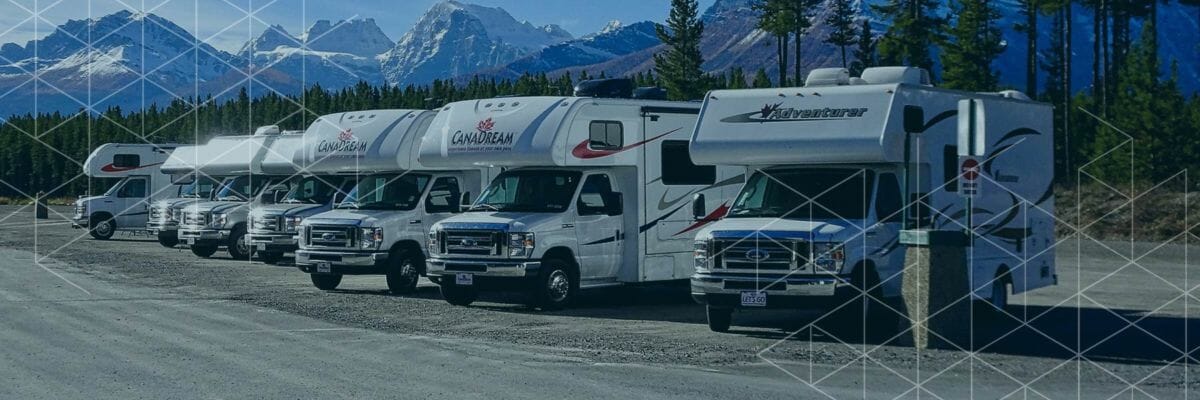When It’s No Vacation: Maryland RV Accidents
 Recreational vehicles (RVs), also known as motorhomes, can be great fun for those who own them. They are a popular option for families who want to avoid crowded airports, security hassles, and perhaps even save money while they see our nation’s natural wonders. According to the Recreational Vehicle Industry Association’s (RVIA) figures, roughly nine million RVs are currently in use, the biggest number on record. More than 355,000 RVs are sold per year, and they aren’t all sold to the retired set: the demographic with the greatest RV ownership growth by percentage are those who are 35 to 54 years old.
Recreational vehicles (RVs), also known as motorhomes, can be great fun for those who own them. They are a popular option for families who want to avoid crowded airports, security hassles, and perhaps even save money while they see our nation’s natural wonders. According to the Recreational Vehicle Industry Association’s (RVIA) figures, roughly nine million RVs are currently in use, the biggest number on record. More than 355,000 RVs are sold per year, and they aren’t all sold to the retired set: the demographic with the greatest RV ownership growth by percentage are those who are 35 to 54 years old.
However, there’s no doubt that motorhomes on our roads can be hazardous to your health. If you’ve ever driven at interstate speeds near an RV, you might have observed some of the things that can go wrong. You might even have been in an accident caused by an RV. If it has happened to you, it can be in your best interests to contact skilled and caring legal assistance such as you’ll find at the Law Offices of Steven H. Heisler.
Let’s Learn About RVs
There’s no doubt about it, RVs are big—much bigger than the average passenger vehicle. And yet, in all 50 states, all you need to drive a motorhome that weighs up to 13 tons (26,000 pounds) is the everyday non-commercial driver’s license in your wallet. Considering that most RV drivers use their motorhome only a few times per year, and that their daily-use vehicle is probably much smaller and lighter, you can see why RV drivers can cause accidents. They simply aren’t used to handling such a big vehicle, regardless of the care they may take.
All RVs fall into one of three classes:
- Class B motorhomes are the lightest and smallest RVs, up to 8,000 pounds and 17 to 19 feet long. These vehicles are also known as van conversions, and are the easiest motorhomes to pilot.
- Class C motorhomes run 20 to 31 feet in length, weighing in at 10,000 to 12,000 pounds. You’ll often find a bunk over the cab, as well as a bathroom, kitchen, and separate bedroom or sleeping area.
- Class A motorhomes are the largest, and the luxury models can cost into the hundreds of thousands of dollars. Class As are sometimes as long as 45 feet and can weigh more than 26,000 pounds. Because of that, Class A RVs sometimes require a special driver’s license.
We don’t want to leave out “fifth wheels,” also known as campers or travel trailers. These towable items can weigh, unloaded, up to 8,000 pounds and stretch to 32 feet long. Full water tanks and needed camping gear can raise the weight to 9,000 pounds or more.
Why Do RVs Crash?
RVs are no exception when it comes to the fact that most motor vehicle crashes are caused by driver error. However, the sheer length of an RV, the increase in blind-spot size, and its inability to be maneuvered nimbly can create the following hazards, some of them unique to motorhomes:
- Increased stopping distances mean that any large, heavy vehicle such as a motorhome will always take more time and space to bring to a halt.
- Turns that are too quick or too tight can mean hitting another vehicle, another object, or even a pedestrian or bicyclist.
- Overloading an RV can make maneuvering and stopping even more difficult than it already is.
- Uneven loading is another problem. Just as with large trucks, RVs need to have a balanced distribution of the loads they carry. An RV with an unbalanced load, like a truck, is more likely to experience a rollover. Unfortunately, even rollovers caused by factors like uneven loading can sometimes lead to accidents involving other vehicles or property. If you’ve been involved in an RV accident due to a rollover or any other cause, seeking guidance from a knowledgeable Baltimore truck accident lawyer is crucial.
- Ignoring an RV’s substantial blind spots can mean you hit another vehicle or even a person.
- Improperly-secured loads towed behind an RV can risk an accident because the trailer “wags” out of its proper lane (also known as sway), or because it becomes a runaway trailer on an upgrade or downgrade.
- Tires on vehicles not driven often can experience dry rot or other deteriorations, and RVs are usually driven infrequently. A tire blowout while an RV is on the road can easily turn deadly because of the lack of maneuverability. Even if the tires are good, over-inflation or under-inflation can create blowout conditions.
- When a driver is not used to piloting an RV routinely, any number of judgment or handling errors can occur.
During 2015, 44 people died in crashes that involved RVs. Injuries during 2012, according to the Federal Motor Carrier Safety Administration (FMCSA), were approximately 75,000 for RV-related accidents.
Maryland Driver’s License Regulations for RVs and Trailers
If your RV weighs less than 26,001 pounds, all you need to drive one is the license you normally use to handle the family passenger vehicle, known as a Class C license. However, if you plan to drive a motorhome that weighs more than that, or if you plan to tow a trailer, the following regulations apply:
- A Class A non-commercial license entitles you to drive any non-commercial vehicle (except motorcycles) and tow any non-commercial trailer.
- A Class B non-commercial license entitles you to drive any non-commercial vehicle (except motorcycles) weighing 26,001 pound or more, or pull a trailer that weighs under 10,000 pounds.
The Maryland Driver’s Handbook can provide more information. When you test, you will need to demonstrate your knowledge of a proper pre-trip inspection, pass an off-road maneuvering course, and pass a road test in a vehicle appropriate for the class of license for which you are testing.
Some states may require that you hold a commercial driver’s license (CDL) to drive an RV that weighs 26,001 pounds or more. If you have a Class A motorhome and plan to visit multiple states, it would be prudent to check the laws that apply to the areas where you will be driving.
Who’s at Fault?
A number of parties can be implicated in any motor vehicle crash, depending on the circumstances, and motorhomes are no different. It’s possible that the driver, the manufacturer of the RV, the maker of a part, and/or other relevant parties may be considered negligent when a crash occurs. If you have suffered through a collision with an RV that resulted in serious injuries or fatalities, seeking legal assistance from an experienced RV accident attorney can help you obtain the financial compensation you need to get on with your life.
We’re listening. How can we help you?
The aftermath of a motor vehicle crash can be life-changing for the accident victims and their family members and often takes years of patience and dedication to overcome. If you believe another party was responsible for the injuries or losses you have suffered in a car vehicle accident in Maryland, Steven Heisler has the experience necessary to help you get your life back on track successfully.
At the Law Offices of Steven H. Heisler, we have devoted our practice to defending the rights of personal injury victims. We know how traumatic a severe vehicular accident can be for both the injured person and for his or her family. If you or a loved one was seriously injured in a crash, you may be entitled to various types of financial compensation, such as medical bills, lost wages, and pain and suffering. Keep in mind, however, that there is a statute of limitations – or a time limit – for filing personal injury claims, so you should not delay. Call Steve today for a free initial consultation or use our confidential online form.

Attorney Steve Heisler
Steve Heisler decided in 1996 that he was going to focus his law practice exclusively on injury cases. Since then, he has been representing injured people against insurance companies, disreputable medical practitioners and Big Pharma, and doing it with compassion, honesty and level-headed rationality. [ Attorney Bio ]


